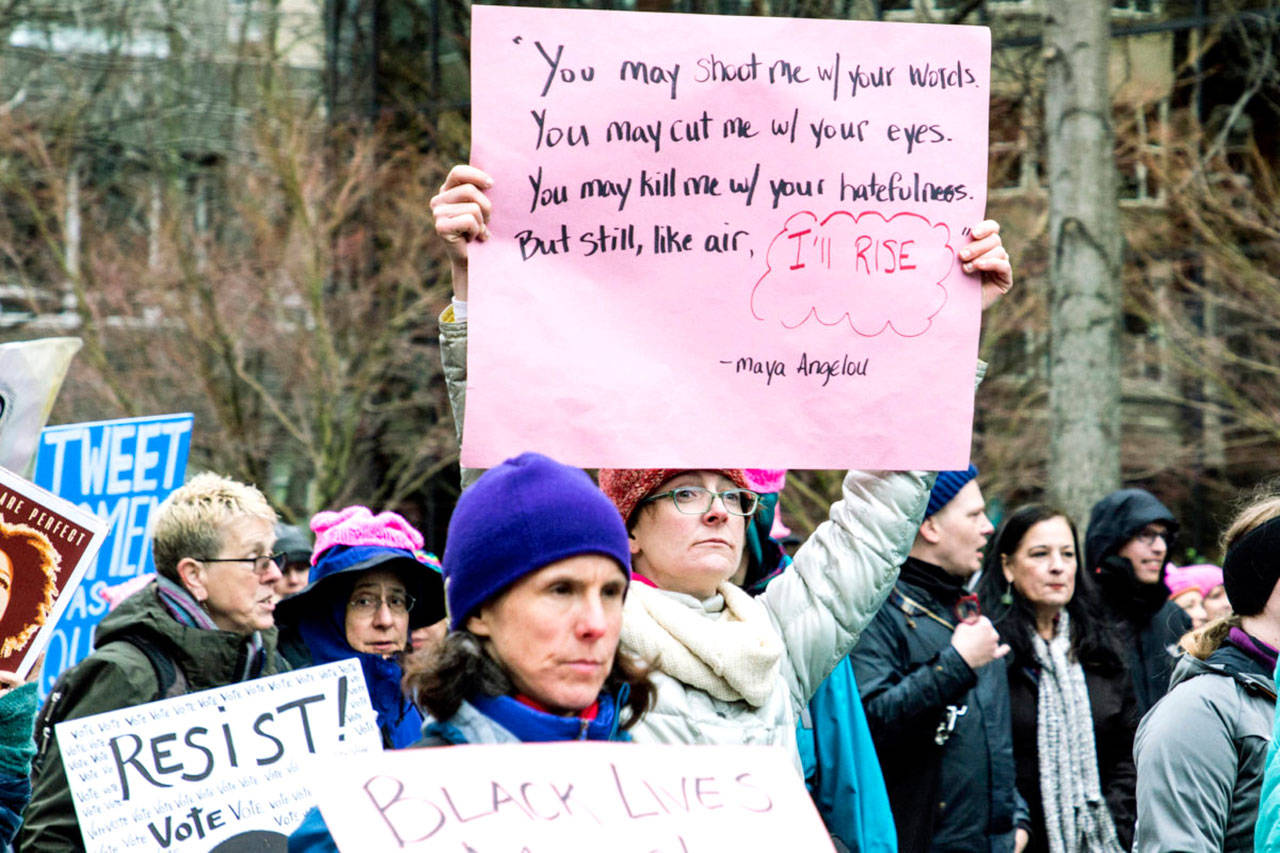In the wake of the #MeToo movement, the King County Council unanimously passed an ordinance on Monday, June 25 that requires the county government overhaul its sexual harassment policies. Now comes the hard part—actually achieving structural change in a county bureaucracy consisting of over 14,000 employees.
Introduced earlier this month by Councilmember Jeanne Kohl-Welles, the bill mandates that the county council and all of the various county departments and agencies rewrite their sexual harassment and discrimination policies, which haven’t been updated since 2002.
Specifically, the ordinance calls upon agencies and elected officials to develop new definitions of sexual harassment, assault, and “inappropriate conduct,” establish procedures for reporting and addressing incidents of such misconduct—such as establishing an informal reporting process for incidents that don’t necessarily meet the legal standard of harassment—and produce cost estimates for training county employees and managers in the new policies. Per the legislation, agencies also have to use the findings and recommendations from the 2016 Equal Employment Opportunity Commission report on workplace harassment as a blueprint for crafting their new policies.
“We will be rebooting our existing efforts to have a inclusive, safe, and respectful workplace for all employees,” Kohl-Welles said prior to the vote. “Approval of this legislation means that we will really be walking our talk.”
The various branches of government will then have to report back to the council in September with their updated protocols, as well as deliver biennial updates on the number of filed harassment or discrimination complaints to help measure the effectiveness of the new procedures.
Part of the impetus for bringing forward the legislation was the statistically improbable low number of reported sexual harassment incidents received by the county’s human resources department. According to Cameron Satterfield, a spokesperson for the Human Resources Division, only one case of sexual harassment was reported to human resources in 2015, one in 2016, and none were filed in 2017, which councilmember Kohl-Welles and advocates argue is most likely due to chronic underreporting, not the nonexistence of incidents of misconduct.
When the measure was first introduced on June 6, judges from the King County District Court system pushed back against the legislation, arguing that any directive issued towards the courts by the council would be undermine notions of judicial independence in the public eye. After hearing those concerns, the council adjusted the legislation to request that the courts merely give “consideration” to the ordinance.
Even after the various departments update their policies, funding still has to be identified to provide initial and ongoing training sessions. Before the vote, Council member Claudia Balducci (a co-sponsor of the ordinance) told Seattle Weekly that the fall’s upcoming county budgeting process will ultimately determine the teeth of the ordinance in the long-term. “The next thing we’re going to have to do is figure out a budget,” she said. “One of the pitfalls when you implement a new policy is you train everybody and check the box and you move on,” said Balducci. “You have to keep on re-enforcing it with everybody. That takes a lot of effort which means staff time and resources.”
As Balducci put it, “We have to show that we’re serious.”


